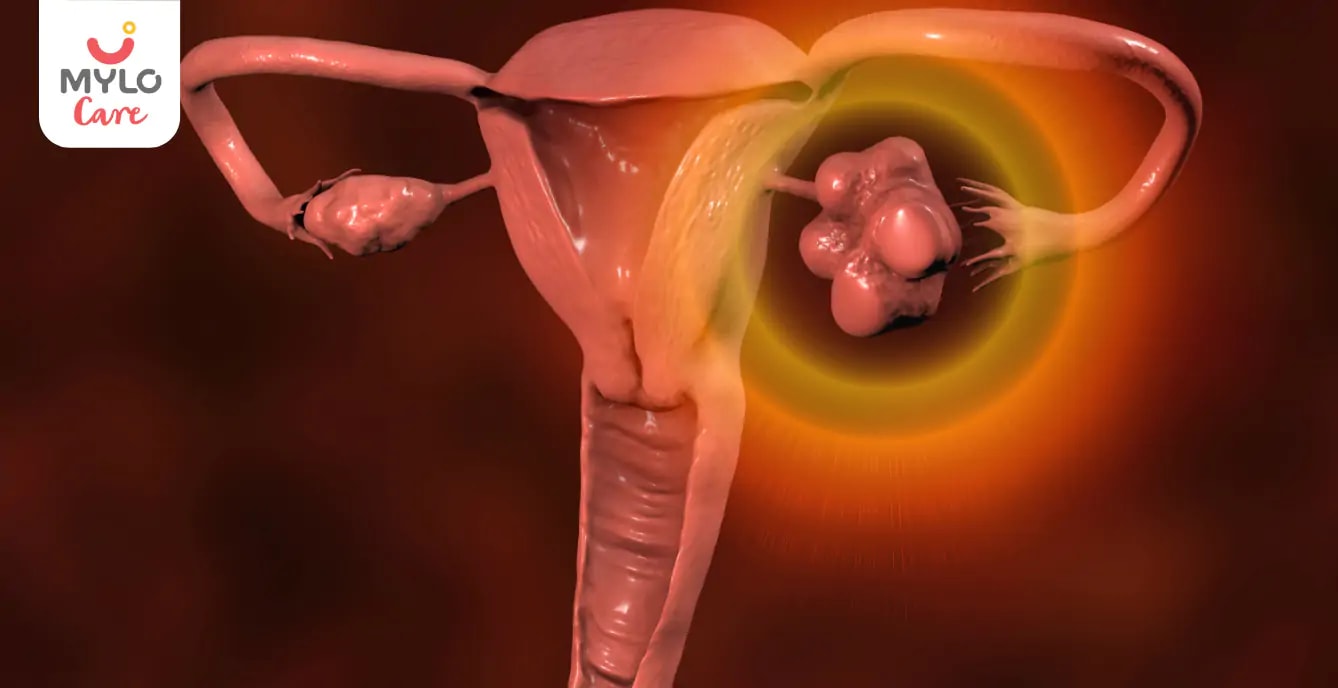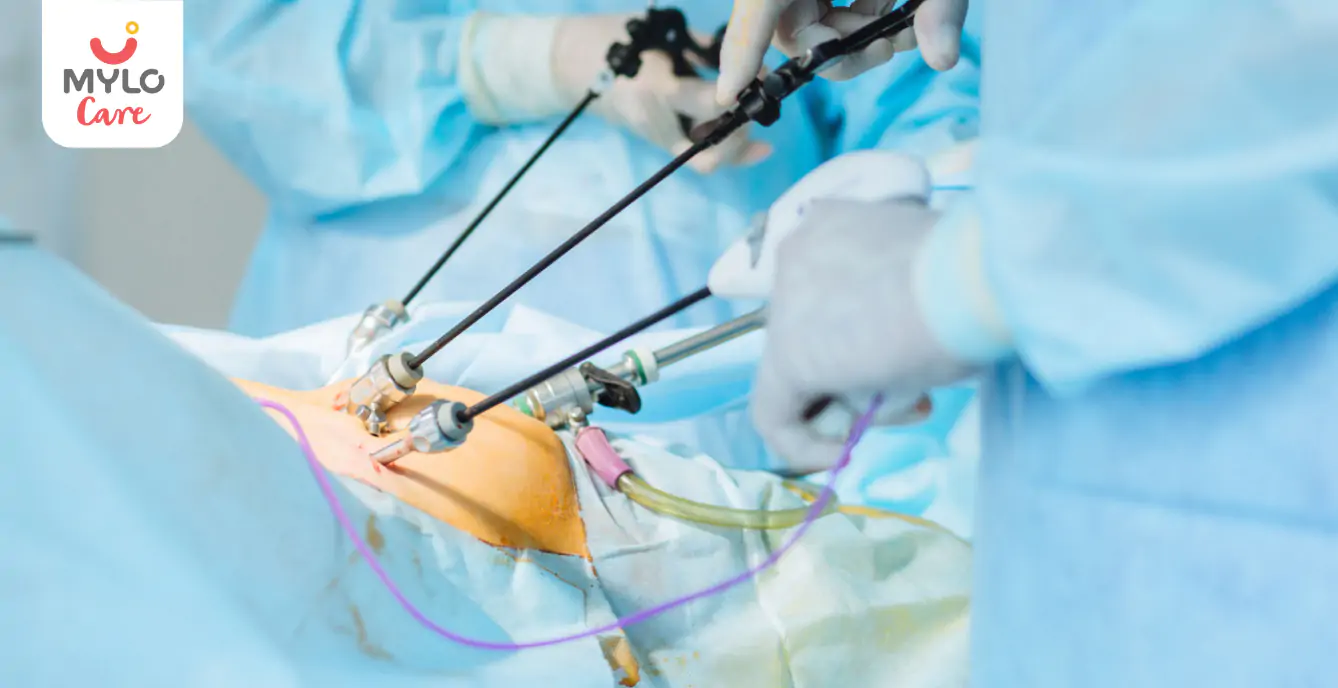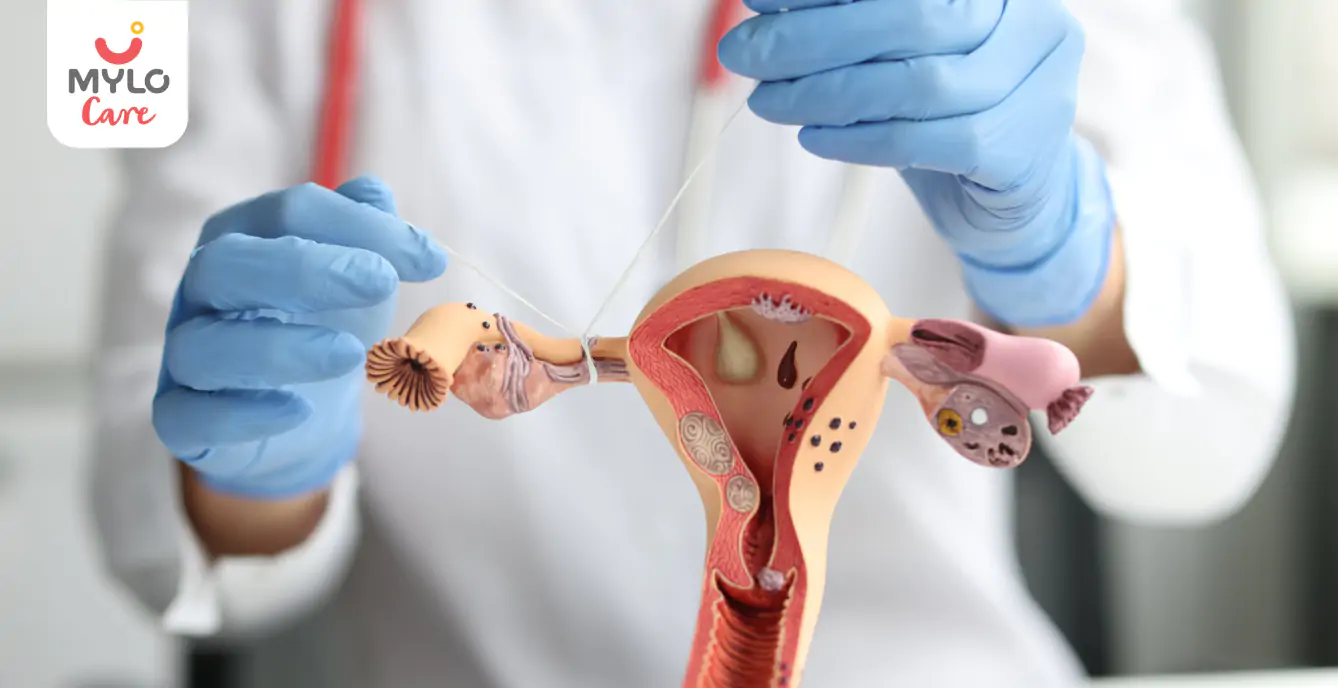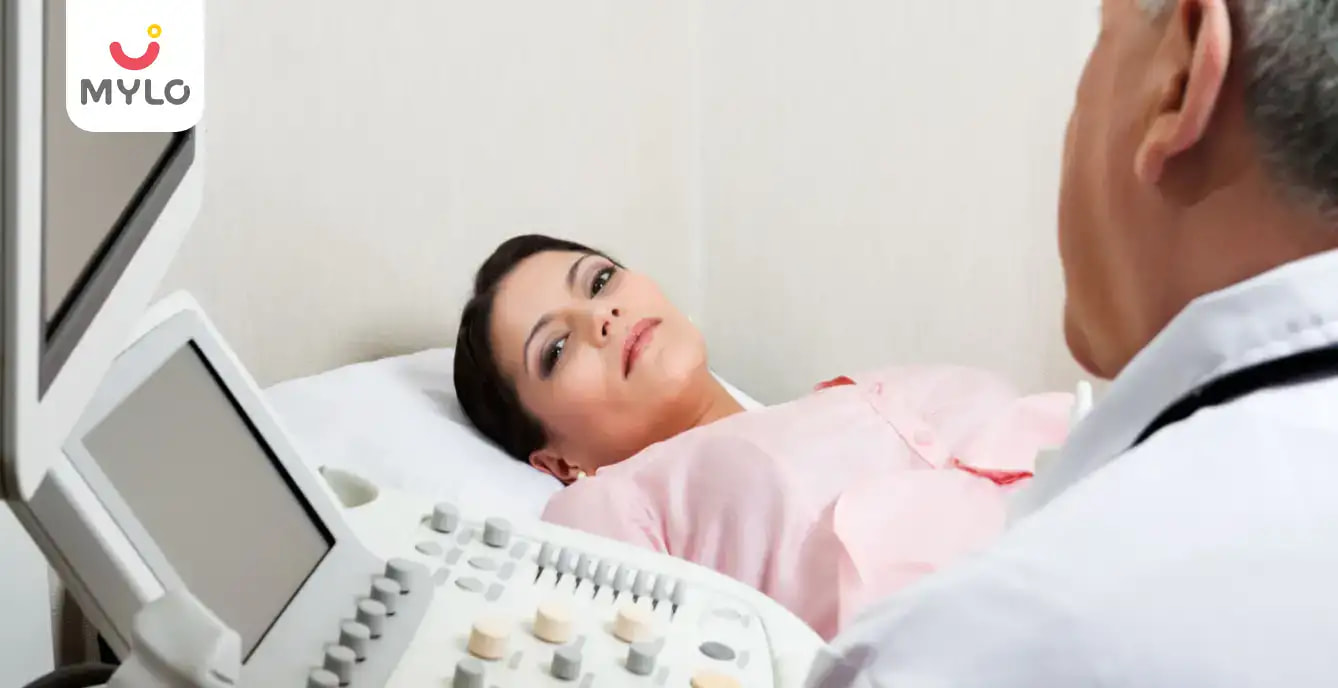Home

PCOS & PCOD

Polycystic Ovarian Disease (PCOD): Navigating Causes, Effects, and Coping Strategies
In this Article

PCOS & PCOD
Polycystic Ovarian Disease (PCOD): Navigating Causes, Effects, and Coping Strategies
Updated on 16 February 2024
Kanika's struggle with Polycystic Ovarian Disease (PCOD) had caused hormonal imbalances, leading to irritability, irregular periods, weight gain, and acne, which at times can be overwhelming. However, her unwavering positive attitude and "never give up" mindset kept her determined. Instead of dwelling on the problems, she sought solutions, which led her to consult a gynaecologist and find a PCOD problem solution.
So, let’s join Kanika on her journey and navigate the causes, effects and treatment options for PCOD.
PCOD Meaning
PCOD full form Polycystic Ovarian Disease is a complex endocrine disorder that affects the female reproductive system. It is estimated to affect around 5-10% of women of childbearing age. The exact cause of PCOD is not fully understood, but it is believed to involve a combination of genetic and environmental factors.
Insulin resistance is often associated with PCOD, as it can lead to increased insulin levels, which in turn stimulate the ovaries to produce more androgens.
What is PCOD Problem in Females?
PCOD is a hormonal disorder that affects females of reproductive age. It involves multiple issues in the female body, including irregular menstrual cycles, hormonal imbalances, ovarian cysts, and potential fertility challenges. The condition can also lead to various health complications, impacting a woman's physical and emotional well-being. Early diagnosis and proper management are crucial to address the PCOD problem effectively.
What Causes PCOD?
The exact cause of Polycystic Ovarian Disease is not fully understood, but it is believed to be influenced by a combination of genetic, hormonal, and lifestyle factors. Several key factors contribute to the development of PCOD:
1. Hormonal Imbalance
Women with PCOD have higher-than-normal levels of androgens (male hormones) such as testosterone. This hormonal imbalance disrupts the regular menstrual cycle and leads to the development of cysts on the ovaries.
2. Insulin Resistance
Insulin is a hormone that regulates blood sugar levels. Insulin resistance occurs when cells do not respond properly to insulin, leading to increased insulin levels in the bloodstream. This can stimulate the ovaries to produce more androgens, exacerbating the hormonal imbalance.
3. Genetics
There is evidence to suggest that PCOD can run in families, indicating a genetic component in its development. If a woman has a close female relative with PCOD, she may be at a higher risk of developing the condition.
4. Inflammation
Chronic low-grade inflammation in the body may contribute to insulin resistance and hormonal imbalances associated with PCOD.
5. Lifestyle Factors
Obesity and an unhealthy lifestyle, such as poor diet choices and lack of physical activity, can increase insulin resistance and hormonal imbalances, increasing the risk of PCOD.
You may also like : PCOD vs. PCOS: The Ultimate Guide to Understanding the Key Differences
What are the Common Symptoms of PCOD?
Polycystic Ovarian Disease is a hormonal disorder that can manifest with a range of symptoms. The most common symptoms of PCOD include:
2. Ovarian cysts
3. Hormonal imbalances
4. Weight gain
5. Infertility
6. Fatigue
7. Male-pattern hair growth (hirsutism) on the face, chest, back, or abdomen
8. Skin issues like acne and oiliness
9. Mood swings
It's important to remember that the symptoms of PCOD can vary from woman to woman, and not all individuals with PCOD will experience every symptom. Some women may have mild symptoms, while others may have more severe manifestations.
How is PCOD Diagnosed?
Diagnosing PCOD involves a comprehensive evaluation of a woman's medical history, physical examination, and specific tests. The diagnostic process typically involves the following steps:
1. Medical History
The doctor will start by taking a detailed medical history, including the patient's menstrual cycles, any symptoms experienced, and family history of PCOD or other hormonal disorders.
2. Physical Examination
A physical examination will be conducted to assess for signs of PCOD, such as acne, hirsutism (excessive hair growth), and skin changes.
3. Blood Tests
Hormonal blood tests are performed to measure various hormone levels, including Follicle-stimulating hormone (FSH), Luteinizing hormone (LH), Testosterone, and Estrogen. Sex hormone-binding globulin (SHBG), Prolactin, and Thyroid-stimulating hormone (TSH). These tests help to identify hormonal imbalances and rule out other conditions.
4. Pelvic Ultrasound
An ultrasound examination of the pelvis is conducted to visualize the ovaries and check for the presence of multiple small cysts on the ovaries.
PCOD Problem Solution
Now that we’ve understood what is PCOD problem in females, let us understand how to manage it. Managing PCOD involves a combination of lifestyle changes, medications, and, in some cases, medical procedures. The goal of treatment is to alleviate symptoms, regulate menstrual cycles, improve hormonal imbalances, and enhance overall well-being.
Here are some common approaches used to address PCOD:
1. Lifestyle Modifications
Lifestyle modification involves eating balanced diet and leading an active life that involves physical exercises like walking, swimming, and others.
2. Weight Management
Maintaining a healthy weight through a balanced diet and regular exercise can help improve insulin sensitivity and hormone balance.
3. Diet
A low-glycemic index diet, rich in fruits, vegetables, whole grains, and lean proteins, may be beneficial in managing insulin resistance.
4. Exercise
Regular physical activity can help improve insulin sensitivity, reduce weight, and manage hormonal imbalances.
You may also like: Yoga Poses for PCOD: 10 Asanas to Help You Balance Your Hormones
5. Medications
Oral contraceptives may be prescribed to regulate menstrual cycles, control androgen levels, and reduce symptoms like acne and hirsutism. Metformin is commonly used to treat insulin resistance and other hormone medications like anti-androgens or gonadotropins may be used to manage specific symptoms or promote ovulation in women trying to conceive.
6. Natural Remedies
PCOD can be managed with natural ingredients like Shatavari, Manjistha, Shankh Pushpi, Chamomile, Myo-inositol, Zinc, and others. These natural ingredients help to maintain hormonal balance, fights insulin resistance and in turn regularize menstrual cycle and ovarian issues. You can also try Mylo’s PCOS/PCOD tea with an especially curated formula involving natural ingredients and Myo-inositol chewable tablets for PCOS & PCOD.
7. Regular Monitoring and Follow-up
Women with PCOD require regular check-ups to monitor their symptoms, hormonal levels, and overall health. This helps ensure that the treatment plan is effective and can be adjusted as needed.
FAQs
1. Is PCOD problem after marriage common?
Yes, Polycystic Ovarian Disease can be common after marriage. Women may experience PCOD symptoms or fertility issues later in life, including after marriage, due to hormonal changes, lifestyle factors, and genetic predisposition.
2. Can you get pregnant with PCOD?
Yes, it is possible to get pregnant with PCOD, but it may be more challenging due to irregular ovulation or lack of ovulation. Women with PCOD may require medical intervention, such as fertility treatments or ovulation-inducing medications, to increase the chances of conception.
3. Can PCOD be cured?
PCOD cannot be completely cured, as it is a chronic hormonal disorder. However, with proper management, including lifestyle changes and medications, symptoms can be controlled, and its impact on a woman's health and fertility can be minimized.
Key Takeaways
In conclusion, Polycystic Ovarian Disease is a common hormonal disorder affecting women of reproductive age. It involves hormonal imbalances, irregular menstrual cycles, ovarian cysts, and potential fertility challenges. While PCOD cannot be fully cured, it can be effectively managed through a combination of lifestyle changes, medications, and medical interventions. Early diagnosis and proactive management are crucial to improving the quality of life and reproductive health for women living with PCOD.
References
1. I, L., & Mayrin, J. V. (2018, November 18). Polycystic Ovarian Disease (Stein-Leventhal Syndrome). Nih.gov; StatPearls Publishing.
2. Sadeghi, H. M., Adeli, I., Calina, D., Docea, A. O., Mousavi, T., Daniali, M., Nikfar, S., Tsatsakis, A., & Abdollahi, M. (2022). Polycystic Ovary Syndrome: A Comprehensive Review of Pathogenesis, Management, and Drug Repurposing. International Journal of Molecular Sciences
Tags
Polycystic Ovarian Disease (PCOD): Navigating Causes, Effects, and Coping Strategies in Bengali, Polycystic Ovarian Disease (PCOD): Navigating Causes, Effects, and Coping Strategies in Tamil, Polycystic Ovarian Disease (PCOD): Navigating Causes, Effects, and Coping Strategies in Telugu



Written by
Madhavi Gupta
Dr. Madhavi Gupta is an accomplished Ayurvedic doctor specializing in Medical content writing with an experience of over 10 years.
Read MoreGet baby's diet chart, and growth tips

Related Articles
Related Questions
Hello frnds..still no pain...doctor said head fix nhi hua hai..bt vagina me pain hai aur back pain bhi... anyone having same issues??

Kon kon c chije aisi hai jo pregnancy mei gas acidity jalan karti hain... Koi btayega plz bcz mujhe aksar khane ke baad hi samagh aata hai ki is chij se gas acidity jalan ho gyi hai. Please share your knowledge

I am 13 week pregnancy. Anyone having Storione-xt tablet. It better to have morning or night ???

Hlo to be moms....i hv a query...in my 9.5 wk i feel body joint pain like in ankle, knee, wrist, shoulder, toes....pain intensity is high...i cnt sleep....what should i do pls help....cn i cosult my doc.

Influenza and boostrix injection kisiko laga hai kya 8 month pregnancy me and q lagta hai ye plz reply me

RECENTLY PUBLISHED ARTICLES
our most recent articles

Medical Procedures
Laparoscopic Ovarian Drilling: A Safe and Effective Solution for PCOS-Related Infertility

Headaches
Headache During Pregnancy: The Ultimate Guide to Causes and Cures

Scans & Tests
Fetal Doppler Scan During Pregnancy: In which week should you get it done?

Sleep
How Long Should Naps Be While Pregnant?

Fertility Problems
Blocked Fallopian Tubes: How They Affect Your Chances of Conceiving

How Do You Notify Your Employer That You Are Pregnant?
- The Ultimate Guide to Consuming Tapioca During Pregnancy
- Braxton Hicks Contractions or Real Labor: How to Tell Them Apart?
- Top 10 Tips For The Third Trimester Of Your Pregnancy
- Maternity Leave 101: Rules, Benefits & Timings for Expectant Working Women
- The A-Z Guide to Identifying Summer Vegetables for Kids
- Christian Baby Girl Names That Stand the Test of Time
- The A-Z Guide on Purple Colour Fruits and Vegetables for Kids
- The A-Z Guide on Red Colour Fruits & Red Colour Vegetables for Kids
- The A-Z Guide on Yellow Fruits & Yellow Colour Vegetables for Kids
- Cervical Cancer: Causes, Symptoms & Prevention
- The A-Z Guide to Identifying Stem Vegetables for Kids
- Can Fetal Heartbeat Disappear and Reappear?
- The Ultimate Guide to Teaching Children 20 to 30 Tables
- GK Questions for Kids from Nursery to Class 6


AWARDS AND RECOGNITION

Mylo wins Forbes D2C Disruptor award

Mylo wins The Economic Times Promising Brands 2022
AS SEEN IN

- Mylo Care: Effective and science-backed personal care and wellness solutions for a joyful you.
- Mylo Baby: Science-backed, gentle and effective personal care & hygiene range for your little one.
- Mylo Community: Trusted and empathetic community of 10mn+ parents and experts.
Product Categories
baby carrier | baby soap | baby wipes | stretch marks cream | baby cream | baby shampoo | baby massage oil | baby hair oil | stretch marks oil | baby body wash | baby powder | baby lotion | diaper rash cream | newborn diapers | teether | baby kajal | baby diapers | cloth diapers |








